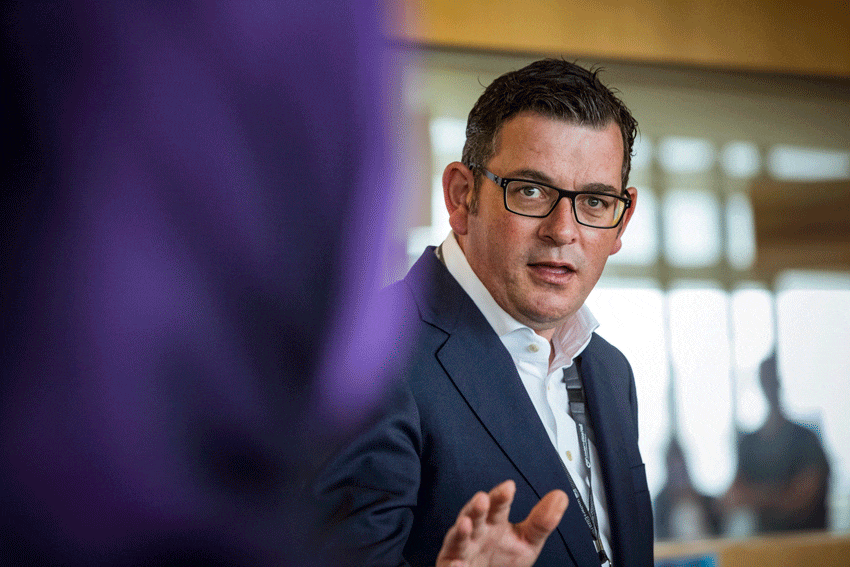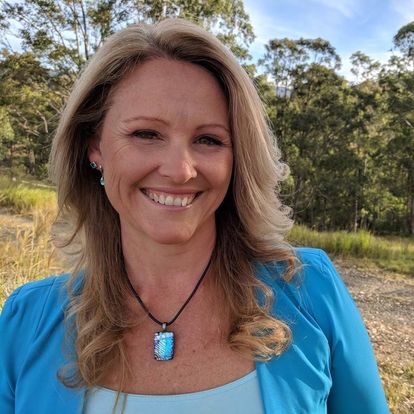
Alarm spreads on conversion law
Reactions to the passing of a law in Victoria to ban so-called ‘conversion practices’ have ranged from deep concern to dismay among those who warned that the bill was severely flawed and an attack on freedom of religion and of speech.
The Change or Suppression (Conversion) Practices Prohibition Bill 2020 passed Victoria’s upper house 27 votes to nine on 4 February, despite strong opposition from faith leaders, ethicists, lawyers, doctors and psychiatrists.
Critics say it is so broad in its definitions and the sanctions so severe that it risks criminalising people in their homes, workplaces and churches who genuinely seek to assist people who ask for their support, as well as Christians and other people of faith.
“With the passing of this bill, Victoria has entered strange new territory in which certain prayers, offered under particular conditions, could turn a parent or counsellor into a criminal,” Melbourne Archbishop Peter Comensoli told The Catholic Weekly.
“Here there seems to have been a lack of willingness by the Parliament to really engage with the concerns expressed and that is very problematic.” -Professor Michael Quinlan
“Despite every reasonable attempt to meet and discuss the problematic aspects of this Bill, faith leaders have met a wall of silence” the archbishop said. “Our great concern here is that opportunities to offer care and support will now be severely limited under the law.”
Prior to the bill being passed, the archbishop joined with other faith leaders to write to Premier Daniel Andrews making it “abundantly clear” that they rejected all harmful and coercive practices. But they said the proposed law would not achieve its stated aim of protecting people from harm, and instead “ultimately hurt people who should be free to ask others for help”.
Michael Quinlan, the Dean of Law at Notre Dame University, Sydney, said it was disappointing that the law will come into effect despite the concerns of faith leaders and the risk of “unintended consequences” as expressed by the Australian Medical Association (AMA) and the Royal Australian and New Zealand College of Psychiatrists (RANZCP).

“Clarity is critical in the law and it is particularly important when a law intrudes into such important principles as individual rights, parental rights, freedom of choice and freedom of religion,” Professor Quinlan said. “Laws which lack clarity cause unnecessary confusion and leave it to courts to provide certainty through case law.
“But particularly in areas of moral and ethical controversy and developing medical science courts are poorly equipped to reach outcomes which are better reached by parliament.
“Parliaments have more time than courts to consider competing interest and arguments and should proceed with caution before introducing laws of concern to such a range of groups within society.
“Here there seems to have been a lack of willingness by the Parliament to really engage with the concerns expressed and that is very problematic.”
John Steenhof, managing director of the Human Rights Law Alliance, said that as “fundamental flaws” were not addressed with amendments, the new law “is a trap ready to spring on any Victorian who does not subscribe to fashionable ideology on sexuality and gender and who has the temerity to share their views”.

“The crosshairs are particularly focused on Christians and others who have deep convictions on sexual ethics,” he added.
Dr Kerryn Rubin, chair of the Victorian branch of the Royal Australian and New Zealand College of Psychiatrists, told media that the insufficient clarity over what is considered a conversion practice in the law meant that some people would “stop doing the valuable work they are doing over fears it will be considered conversion therapy”.
“The unintended consequence is that it will make people more and more reticent to support people who really need our help,” Dr Rubin said.
Ethicist Margaret Somerville said one of the basic presumptions of healthcare ethics, along with patient-centred decision-making, is informed consent. “Informed consent already requires that there be no coercion or undue influence on a person to accept treatment,” she said.
“Where there is clear professional opinion that some form of intervention is seriously harmful then of course there’s a reason to stop that kind of intervention, especially if vulnerable people are at risk.
“However, while we have obligations to protect vulnerable people, it’s not clear whether this law, as drafted, will do more good than harm. And one thing we need to be very careful about is when what we’re doing is restricting the freedom of competent adults to consent to an intervention which they believe will benefit them.”
Focus on gender transitioning
Kirralie Smith of advocacy group Binary slammed the passing of the “outrageously bigoted bill”. “Politicians have condemned vulnerable suffers to a life of daily medications, possible sterilisation and infertility and mutilation via surgery of perfectly healthy body parts,” Ms Smith said.
“Every politician who has voted for this bill has neglected the care and rights of children. They have usurped parental rights and put children in danger.”
In a submission to parliament in opposition to the proposed law, the Sydney-based LGB Alliance Australia, an advocacy group for people with same-sex sexual orientation, slammed it as an “unasked for, unnecessary, deceptive bill”.
“It is deeply disturbing that any legislation should be passed into law which mandates conversion practices under a Bill that is meant to prohibit conversion practices,” the submission said.
“It pushes for censorship and oppression of people whose health, liberty and income will be critically impacted if put into legislation. We believe any process of inclusion and diversity needs to follow democratic principles of polling all interested parties and should not in any way curtail free speech or frame any respectful dissent as hate speech.
“This Bill violates democratic principles of inclusion and diversity in the creation of this Bill and the ‘urgent’ rush for it to be rammed through into legislation unasked for by the Victorian people. Only one perspective, a gender ideology perspective was put forward by a LGBTQIA+ organisation as the primary input into the Bill’s creation.”
Archbishop Comensoli said that while Catholics in Victoria won’t stop working constructively with others, “many now feel ignored and disregarded by some lawmakers”.
The full statement from Archbishop Peter Comensoli:
The Catholic bishops of Victoria have joined their voices with other faith leaders to make two things abundantly clear:
- We absolutely reject all harmful and coercive practices and want to support laws that protect vulnerable people.
- Sadly the Bill that was passed with very little resistance in our Parliament does not achieve its stated aims. Instead of focusing on protecting people from harm, it is constructed with vague language and broad categories that will ultimately hurt people who should be free to ask others for help.
The Catholic Church is just one voice among many. Unfortunately faith leaders and pastors, counsellors and medical professionals, lawyers and parents were all ignored. A law was passed quickly and without adequate consultation, and legitimate questions from the Australian Medical Association and the Royal Australian and New Zealand College of Psychiatrists were not answered.
With the passing of this Bill, Victoria has entered strange new territory in which certain prayers, offered under particular conditions, could turn a parent or counsellor into a criminal.
The Bill very specifically names ‘conversion’ in its title, conveying something negative and insidious about a key part of Christian identity. All of us are invited into conversion all of the time, and we are urged by Scripture to prayerfully encourage one another in a closer and more faithful walk with Jesus, full of mercy and hope.
Despite every reasonable attempt to meet and discuss the problematic aspects of this Bill, faith leaders have met a wall of silence. Our great concern here is that opportunities to offer care and support will now be severely limited under the law.
Catholics in Victoria won’t stop working constructively with others, and continuing to work with, pray with, and support all in our community as best we can. But many now feel ignored and disregarded by some lawmakers.
Related articles:
